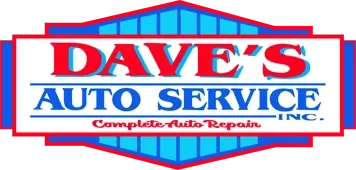Driving in Pennsylvania requires adherence to specific state regulations, including the annual Pennsylvania (PA) state inspections. These inspections are designed to ensure that vehicles meet safety and emissions standards, promoting road safety and environmental protection. Understanding what could potentially fail your car in these inspections is crucial for all vehicle owners in PA. At Dave’s Auto Service, our experts in PA state inspections help us share some insights into common reasons vehicles might not pass and how you can prepare for your next inspection.
Red Flags During PA State Inspections
Emissions Failure
One of the primary components of PA state inspections is the emissions test. Vehicles registered in specific counties are required to undergo this test to control air pollution. Common reasons for failing include issues with the vehicle’s exhaust gas recirculation (EGR) system, problems with the catalytic converter, or a malfunctioning oxygen sensor. Regular maintenance and addressing check engine lights promptly can help avoid these failures.
Brake System Deficiencies
The brake system is another critical safety feature scrutinized during the inspection. Worn brake pads or rotors, leaks in the brake lines, or malfunctioning brake lights can result in a failed inspection. Ensuring your vehicle’s brake system functions correctly is not only essential for passing the inspection but also for the safety of everyone on the road.
Excessive Tire Wear and Tear
Tires in poor condition are a common reason for failing PA state inspections. Tires should have adequate tread depth, show no signs of severe wear, and must be free from bulges or exposed cords. Checking the health of your tires regularly and replacing them when necessary can prevent this issue.
Lighting and Electrical Problems
Functional lighting is essential for vehicle safety, making it a significant focus during inspections. This includes headlights, tail lights, turn signals, brake lights, and reverse lights. Vehicles with any non-operational lighting can fail the inspection. Regular checks can help identify and rectify these issues before your inspection.
Potentially Dangerous Windshield and Window Damage
Cracks or chips in the windshield or any car windows that obstruct the driver’s view can lead to a failed inspection. Minor chips outside the driver’s direct line of sight may not cause a failure, but it’s always best to repair any damage to ensure visibility and safety.
Damage to Suspension and Steering Systems
Issues with the suspension or steering systems, such as worn suspension components, loose steering linkage, or power steering malfunctions, can also result in failed PA state inspections. These systems are vital for vehicle control and stability, making their proper function a top priority.
Exhaust System Issues
An intact and functional exhaust system is crucial for passing the PA state inspections. Leaks or damages in the exhaust system not only lead to emissions test failure but can also pose health and safety risks due to the potential for harmful gases entering the vehicle’s cabin.
Prepare for Your PA State Inspection in Boyertown, PA
Preparing for your PA state inspection involves more than just understanding what could cause a failure; it requires regular vehicle maintenance and addressing issues as they arise. At Dave’s Auto Service, we’ve assisted countless drivers in navigating the complexities of PA state inspections, ensuring their vehicles are safe and compliant with state regulations. Whether your vehicle needs a pre-inspection check-up, specific repairs to pass inspection, or if you simply have questions about the process, our team is here to help.
Regular maintenance and addressing minor issues before they become major problems can save you time and money in the long run and, most importantly, keep you safe on the road. For more information on PA state inspections or how to schedule your next service, contact us today at (610) 839-7788. Our expert team is dedicated to providing top-quality service, helping you pass your PA state inspections with flying colors.
